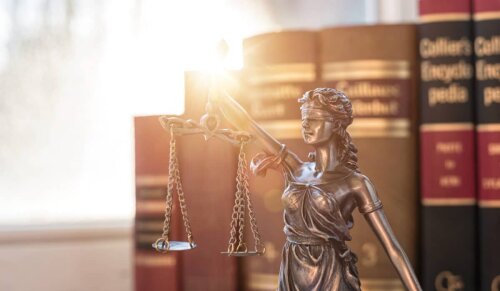Best Assault & Battery Lawyers in Washington
Share your needs with us, get contacted by law firms.
Free. Takes 2 min.
Or refine your search by selecting a city:
List of the best lawyers in Washington, United States
About Assault & Battery Law in Washington, United States
Assault and battery are criminal offenses in Washington State, although the legal system combines the terms under the modern heading of "assault." In general terms, assault refers to any intentional act that causes another person to fear imminent bodily harm or that involves unwanted physical contact. Washington does not separately define battery as its own charge but instead includes all forms of unwanted or harmful physical contact under its assault statutes. The seriousness of the charge depends on factors like injury severity, use of weapons, intent, and victim status. Convictions can result in criminal penalties as well as civil repercussions.
Why You May Need a Lawyer
Assault charges in Washington can have severe consequences, including jail time, fines, restraining orders, and a permanent criminal record. Here are some common situations where legal help is needed:
- You are accused of assault and need to defend yourself in court.
- You believe you have been wrongly arrested or charged after a physical altercation or argument.
- You are the victim of assault and want to pursue criminal charges or a civil lawsuit for damages.
- Your case involves complicating factors, such as allegations of domestic violence, use of weapons, injury to a vulnerable person, or self-defense claims.
- You need guidance about restraining orders or protection orders because of an assault situation.
- You face questions from law enforcement or insurance companies about an assault incident.
Legal representation can help protect your rights, explain the charges, negotiate with prosecutors, and advocate for the best outcome in your unique situation.
Local Laws Overview
Assault in Washington is classified under Title 9A of the Revised Code of Washington (RCW), particularly RCW 9A.36. There are several degrees of assault charges:
- First Degree Assault - The most serious, often involving deadly weapons or intent to inflict great bodily harm. This is a Class A felony.
- Second Degree Assault - Includes serious bodily harm, use of weapons, or assaults on public officials. This is a Class B felony.
- Third Degree Assault - Often involves assaults against certain protected classes (like police officers), or causing bodily harm with intent. This is a Class C felony.
- Fourth Degree Assault - Sometimes called "simple assault," this covers all other assaults that do not fit the higher degrees. It is a gross misdemeanor.
Assault charges may be elevated based on circumstances such as the use of a weapon, intent, the victim's identity, or the presence of injuries. Sentencing depends on the degree, prior history, and the presence of aggravating or mitigating factors. Domestic violence situations and assaults in schools or against protected persons may trigger additional penalties and procedures.
Frequently Asked Questions
What is considered assault in Washington State?
Assault in Washington includes intentionally causing bodily harm, attempting to cause harm, or any intentional act that puts another person in fear of imminent harm or unwanted contact.
Is battery a separate charge from assault in Washington?
No. Washington does not treat battery as a separate crime. Acts that would be considered battery elsewhere are charged as forms of assault in Washington.
What should I do if I am accused of assault?
You should avoid speaking about the incident with anyone except your attorney. Contact a qualified criminal defense lawyer as soon as possible to protect your rights and prepare your defense.
Can self-defense be used as a defense for assault charges?
Yes. Self-defense is a valid legal defense if you used reasonable force to protect yourself or another person from imminent harm. The specifics and limits depend on the circumstances.
What are the potential penalties for assault convictions?
Penalties range from fines and probation to many years in prison. Felony assault convictions can lead to significant prison sentences and long-term consequences. Even misdemeanor convictions can result in jail time and fines.
How does domestic violence affect assault charges?
Assault charges involving domestic violence carry additional penalties, including mandatory arrest, restrictions on firearm possession, and protective orders. Specialized procedures and sentencing enhancements may also apply.
What if the alleged victim does not want to press charges?
In Washington, prosecutors have the authority to pursue assault charges even if the victim wishes to drop them. The state, not the victim, controls whether charges go forward.
Can I have an assault conviction expunged or vacated?
In some cases, misdemeanor assault convictions can be vacated after certain conditions are met. Felony convictions are more difficult to remove. Consult an attorney for individual eligibility requirements.
What is a No Contact Order and how does it relate to assault?
A No Contact Order is a type of restraining order that prohibits contact between you and the alleged victim. It is commonly issued in assault cases, particularly those involving domestic violence.
When should I hire a lawyer for assault charges?
You should contact a lawyer as soon as you are investigated or charged. Early legal representation improves your chances of a favorable outcome and helps you avoid common mistakes.
Additional Resources
If you are facing assault charges or are a victim seeking support, these resources may help:
- Washington State Bar Association - Lawyer referrals and legal information
- Washington Courts - Information on court processes, protection orders, and case lookup
- Washington LawHelp - Free legal information for low-income residents
- Local public defender offices for those who cannot afford private counsel
- Local domestic violence advocacy organizations
- Washington Department of Corrections - Information about rights and custody
Next Steps
If you require legal help with an assault issue in Washington, start by gathering documentation about your case, such as police reports, witness information, and any related communications. Do not discuss the details of your case with law enforcement or third parties until you have legal representation. Contact a qualified criminal defense or victim's rights attorney who specializes in Washington assault law. They can help you understand your rights, evaluate your legal options, and navigate the next steps for defense, negotiation, or pursuing justice. If finances are a concern, seek assistance from public defender offices, legal aid organizations, or advocacy groups in your community.
Lawzana helps you find the best lawyers and law firms in Washington through a curated and pre-screened list of qualified legal professionals. Our platform offers rankings and detailed profiles of attorneys and law firms, allowing you to compare based on practice areas, including Assault & Battery, experience, and client feedback.
Each profile includes a description of the firm's areas of practice, client reviews, team members and partners, year of establishment, spoken languages, office locations, contact information, social media presence, and any published articles or resources. Most firms on our platform speak English and are experienced in both local and international legal matters.
Get a quote from top-rated law firms in Washington, United States — quickly, securely, and without unnecessary hassle.
Disclaimer:
The information provided on this page is for general informational purposes only and does not constitute legal advice. While we strive to ensure the accuracy and relevance of the content, legal information may change over time, and interpretations of the law can vary. You should always consult with a qualified legal professional for advice specific to your situation.
We disclaim all liability for actions taken or not taken based on the content of this page. If you believe any information is incorrect or outdated, please contact us, and we will review and update it where appropriate.
Browse assault & battery law firms by city in Washington
Refine your search by selecting a city.











